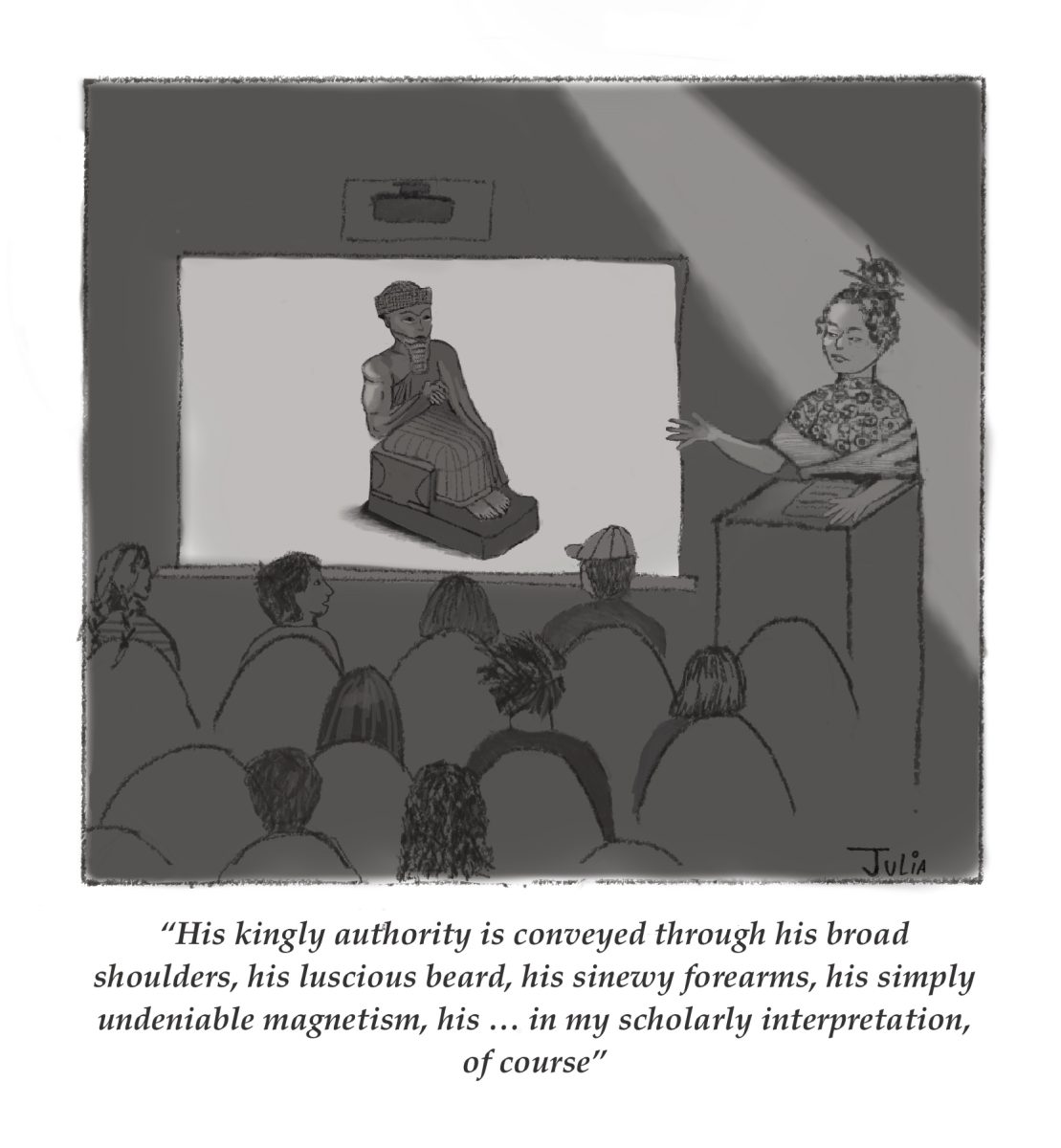U.S.-China relations are worsening on every front. Military communication remains limited, and expanding tariff and export controls are severing once-strong economic ties. This stagnation heightens the risk of a confrontation between two nuclear powers, and they expose a deeper problem: While Chinese policymakers, scholars, and citizens study the United States with striking intensity, most Americans lack an equivalent understanding of China.
That asymmetry of understanding is growing. A decade ago, more than 10,000 Americans studied in China each year. Today, that number has fallen to only a few hundred.
This past spring I was one of those few. While studying abroad in Beijing, my teachers told us that the program’s enrollment had dropped by half since the COVID-19 pandemic. Meanwhile, roughly 275,000 Chinese students are enrolled at U.S. colleges and universities. That imbalance is stark. If America wants to manage its rivalry with China responsibly, it needs more students studying there, not fewer.
After five months at Tsinghua University, I returned to the United States convinced that America is underusing a vital foreign policy tool: academic exchange. Williams’ students and faculty can — and should — help revive it.
In Beijing, as I buckled into taxi cabs and breathed in the smell of cigarettes, I would often ask in Mandarin, “Why did you start driving?” Getting glimpses of the truth was not always easy when surveillance cameras loomed, but honest conversations were possible for those willing to ask and suspend judgment. Months of simple questions uncovered realities often missed by politicians, reporters, and academics thousands of miles away. Most interlocutors met me with kind yet guarded hospitality, and I found myself balancing the warmth of individual encounters against the weight of great power competition.
Those contradictions — innovation amid slowdown and confidence amid anxiety — are precisely what American students need to witness firsthand. On one hand, China is a hub for cutting-edge technological innovation. Its largest automaker, BYD, recently unveiled an electric car that can be charged in just five minutes. At the same time, the country faces serious headwinds: a slowing economy, a shrinking population, and rising youth unemployment. Nationalist optimism for the country’s continued rise is simultaneously subdued by personal economic anxieties.
We in the United States often reduce 1.4 billion people into one Communist Party. The China I saw was far more complex and also far more human. Countless moments reminded me how easy it is to debate China in the abstract — and how hard it is to speak with the people who live there.
That distance is hard to bridge from Williamstown. Many students are still trying by enrolling in language courses taught by our expert professors and studying China’s history and politics. Last week, dozens of students and faculty convened at the Global Issues Forum, an important starting point. However, none of these are substitutes for in-person exchange.
Why aren’t more American students going? There are many reasons: China’s strict “Zero-COVID” policies prevented study abroad for several years, and political tensions haven’t helped. Until recently, the U.S. State Department advised students to “reconsider travel” to China, dissuading college study abroad offices and nervous parents alike. And, on a practical note, flight options remain limited and expensive.
Many students at Williams and elsewhere now choose to study in Taiwan over mainland China. In recent years, several long-standing language programs in the mainland have either closed or moved to Taiwan.
My own academic path also reflects that trend. Two years ago, I joined the inaugural class at the Harvard Taipei Academy, created after the university moved its Chinese language program from Beijing to Taipei. Like many American students, I chose Taiwan because studying in the mainland was uncertain.
The island offers a dynamic, open environment and deep linguistic immersion, but it is no substitute for firsthand engagement with the mainland. Studying there opened my eyes to understanding an important side of the contentious Taiwan Strait. It became evident that without spending time in mainland China itself, we risk misunderstanding the other side of the conversation and talking past those who impact the future we’re trying to navigate.
People-to-people exchange isn’t a cure-all, but it’s a start. Direct dialogue reminds us that beneath rival systems and competing interests lies our shared humanity. If we hope to cooperate where possible and de-escalate where necessary, we must first understand how the other side thinks and responds.
Young people are uniquely positioned to help bridge these geopolitical quandaries. We don’t yet carry classified information or sensitive corporate interests. We bring questions, hopes, and a willingness to listen. Many of humanity’s greatest challenges — climate change, public health, and artificial intelligence — don’t respect borders, and young people are already working across them. Thus, even as we navigate the security tensions that define U.S.-China relations, we can’t afford to lose sight of the arenas where cooperation still matters — and where our generation can make it possible.
Williams students and faculty can also help narrow this gap. The College already offers several approved study-away programs in Mainland China for students to choose from. At the national level, Washington should reinstate the Fulbright Program in China, which has been suspended since 2020, and strengthen the academic and professional exchanges that still exist.
Whether in international governance, climate policy, or AI research, lasting progress will depend on collaboration that traverses geopolitical tension. Advancing knowledge in these fields is not a concession to geopolitics — it is an essential investment in global resilience and prosperity.
As for the U.S.-China relationship, truth will never be found in oversimplification; it is only discovered through due diligence. Embracing firsthand, in-country expertise is critical if we want to avoid repeating past foreign policy failures in which distance clouded judgment and led to failure. Even if bilateral relations do not recover, both sides will benefit from a more informed understanding. For now, China’s door is still open. Students should seize this opportunity before it closes.
Rem Johannknecht ’26 is an economics and Chinese major from Chicago, Ill.




